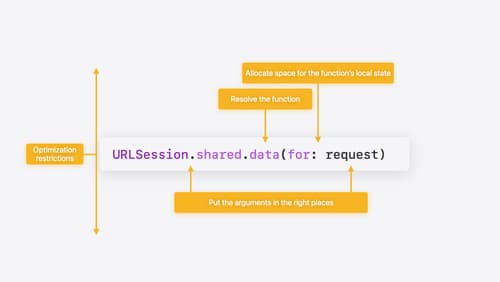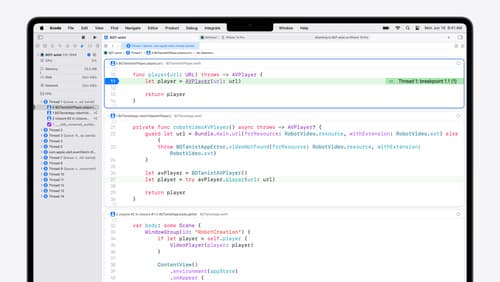swift macros
Asked on 2024-08-15
1 search
Swift macros are a powerful feature introduced to enhance the expressivity and reduce boilerplate in Swift code. They act as compiler plugins, taking the syntax tree as input and returning transformed code as output. This allows developers to create more expressive APIs and streamline their code.
For example, in the session titled "What’s new in Xcode 16," the previewable macro is introduced, which can be attached to property wrappers like state, allowing developers to use them directly within a preview block. This simplifies the process of creating UI previews by reducing the need for wrapper views.
In the session "Meet Swift Testing," the expect macro is highlighted as a flexible tool for testing. It allows developers to pass any expression, including operators and method calls, and provides detailed results if a test fails. The require macro is also mentioned, which can end a test early if an expectation fails, ensuring that tests do not proceed with invalid assumptions.
Additionally, the session "What’s new in SwiftData" discusses the index macro, which improves the performance of queries by optimizing how data is stored and retrieved.
For more detailed information on Swift macros, you can refer to the session "A Swift Tour: Explore Swift’s features and design," where macros are discussed as a flexible tool for developers. If you are interested in learning more about specific macros like the previewable macro, you can check the session "What’s new in Xcode 16" at the chapter on "Improvements to Previews."
Here are some relevant sessions that discuss Swift macros:

Explore Swift performance
Discover how Swift balances abstraction and performance. Learn what elements of performance to consider and how the Swift optimizer affects them. Explore the different features of Swift and how they’re implemented to further understand the tradeoffs available that can impact performance.

What’s new in Xcode 16
Discover the latest productivity and performance improvements in Xcode 16. Learn about enhancements to code completion, diagnostics, and Xcode Previews. Find out more about updates in builds and explore improvements in debugging and Instruments.

Platforms State of the Union
Discover the newest advancements on Apple platforms.
